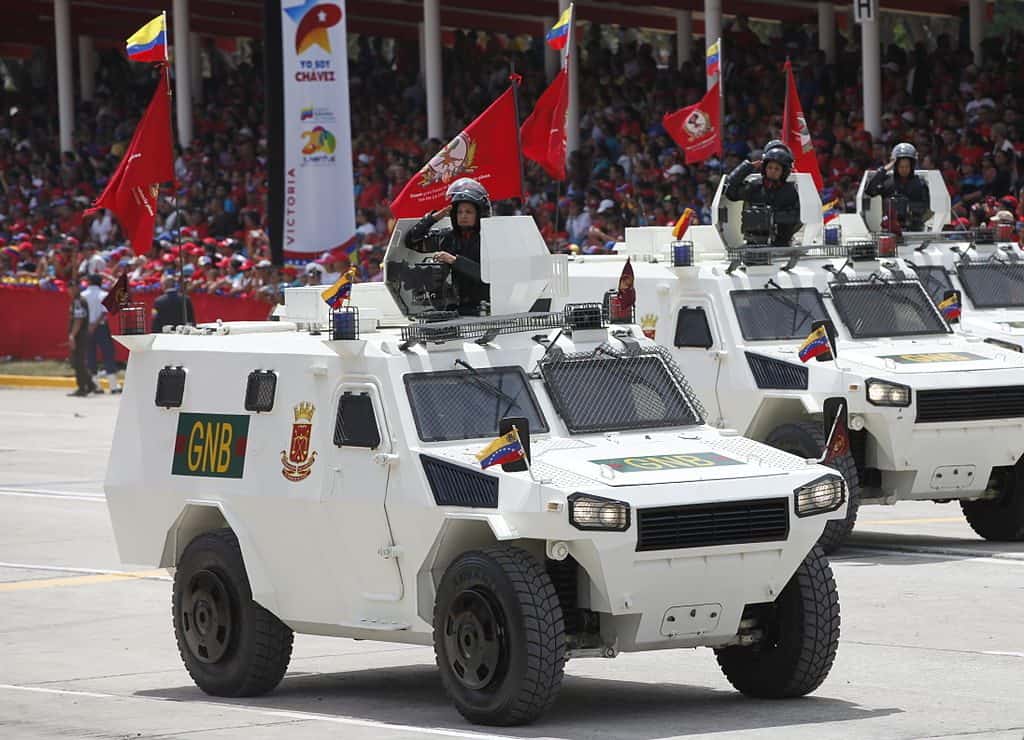
President Trump has been handling the Venezuelan crisis skillfully and enjoying a substantial publicity boost as a consequence.
Some may be wondering how Nicolás Maduro, the Venezuelan dictator — with his oil revenues cut off, the economy a wreck, and much of the population starving — is still managing to hold onto power.
An important part of the explanation is the military-commercial nexus that Venezuela shares with several other dictatorships, notably Cuba and Pakistan. In each of these countries the top levels of the armed forces officer corps have been corrupted by being granted major interests in government-protected commercial enterprises.
“There is no doubt that the main economic entity in Cuba today is the Revolutionary Armed Forces (FAR),” the publication Ni1Más reports. “Officially no data has been disclosed, but some experts estimate that military companies already account for about 70% of the national economy, while the most important and lucrative sectors, offering safe profitability, boast a privileged, even monopolistic position.”
In the case of Venezuela, the commercial-military nexus was implemented under the inspiration of Cuba and with the direct assistance of its intelligence operatives. The nexus involves both legal and illegal activities:
Few details are known about the exact scope and magnitude of economic interest and control held by the military “behind the scenes.” Allegations about involvement in drug trafficking have been widespread…More recent is the news that US prosecutors are preparing to charge Nestor Reverol, the head of Venezuela’s National Guard, for his involvement in drug trafficking….Some reports indicate that members of the military have illegitimate interests in the country’s small, but lucrative mining industry. Moreover, allegations are rife about corruption involving military officers both inside and outside posts in public administration; “the word on the street” is that this has grown in scope since Chávez’s death. Indeed, the military is attributed a role in fueling the current economic crisis, as military officers, especially those stationed along the border, are thought to be deeply involved in facilitating the smuggling of consumer goods and currency across the border with Colombia.
More recently, the government announced more direct military involvement in the extractive industries through the formation of the company “Military Company Limited of Mining, Petroleum and Gas Industries” (CAMIMPEG). Framed as security management of the country’s natural resources, the legislative framework of CAMIMPEG provides the military sector with broad powers related to operations in the extractive sector.
Indeed, the military are massacring rivals to their gold mining enterprises in the southeastern Venezuelan state of Bolívar.
It remains to be seen how the standoff between the corrupt military-backed Maduro and the internationally recognized president of the National Assembly, Juan Guaido, unfolds. If the unseating of the dictator is relatively disaster-free, this will be a major foreign policy victory for the Trump administration.

Leave a Reply